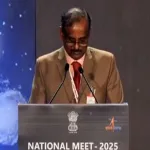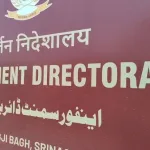The Supreme Court on Monday upheld that the abrogation of Article 370 as constitutionally valid. In a landmark judgement, the apex court held that the Constitution of India is applicable fully to Jammu and Kashmir.
“We direct that steps shall be taken by the Election Commission of India to conduct elections to the Legislative Assembly of Jammu and Kashmir by 30 September 2024,” said CJI reading judgment in Article 370 matter.
While reading out the judgment, CJI said Supreme Court holds that Article370 was an interim arrangement due to war conditions in the State. Textual reading also indicates that Article 370 is a temporary provision.
Supreme Court said no maladies in exercise of power under Article 370(3) by President to issue August 2019 order. Thus, we hold the exercise of Presidential power to be valid, says Supreme Court.Supreme Court says concurrence of the State government was not required to apply all provisions of the Constitution using Article 370(1)(d). So, the President of India taking the concurrence of the Union government was not malafide.
The Constitution Bench was hearing a batch of petitions challenging the abrogation of Article 370 of the Constitution and bifurcating the state into two Union Territories.
CJI Chandrachud reading out the judgement said that every decision taken by the Centre on behalf of a State under proclamation can’t be subject to a legal challenge and it will lead to the administration of the State to a standstill.
Supreme Court said that it has held that Article 370 was a temporary provision.
” The proclamation of Maharaja stated that the Constitution of India will supersede. With this, the para of Instrument of Accession ceases to exist….Article 370 was an interim arrangement due to war conditions in the State. Textual reading also indicates that Article 370 is a temporary provision,” the Court said.
The Apex court also mentioned that the argument of petitioners that the Union government cannot take actions of irreversible consequences in the State during Presidential rule is not acceptable.
“We have held that the state of Jammu and Kashmir did not retain an element of sovereignty when it joined the Union of India. We have arrived at this conclusion for the following reasons. First paragraph eight of the instrument of acession executed by Maharaja Hari Singh provided that nothing in the instrument would affect the continuance of the sovereignty of the Maharaja in and over the state,” CJI Chandrachud said.
The CJI further noted that on November 25, 1949, a proclamation was issued for the State of Jammu and Kashmir by “Yuvraj Karan Singh”.
The five-judge constitution bench assembled to deliver its verdict on the 2019 abrogation of Article 370. The bench comprises Chief Justice of India Dhananjaya Y Chandrachud and justices Sanjay Kishan Kaul, Sanjiv Khanna, BR Gavai, and Surya Kant.
On August 5, 2019, the Central government announced the revocation of the special status of Jammu and Kashmir granted under Article 370 and split the region into two union territories





